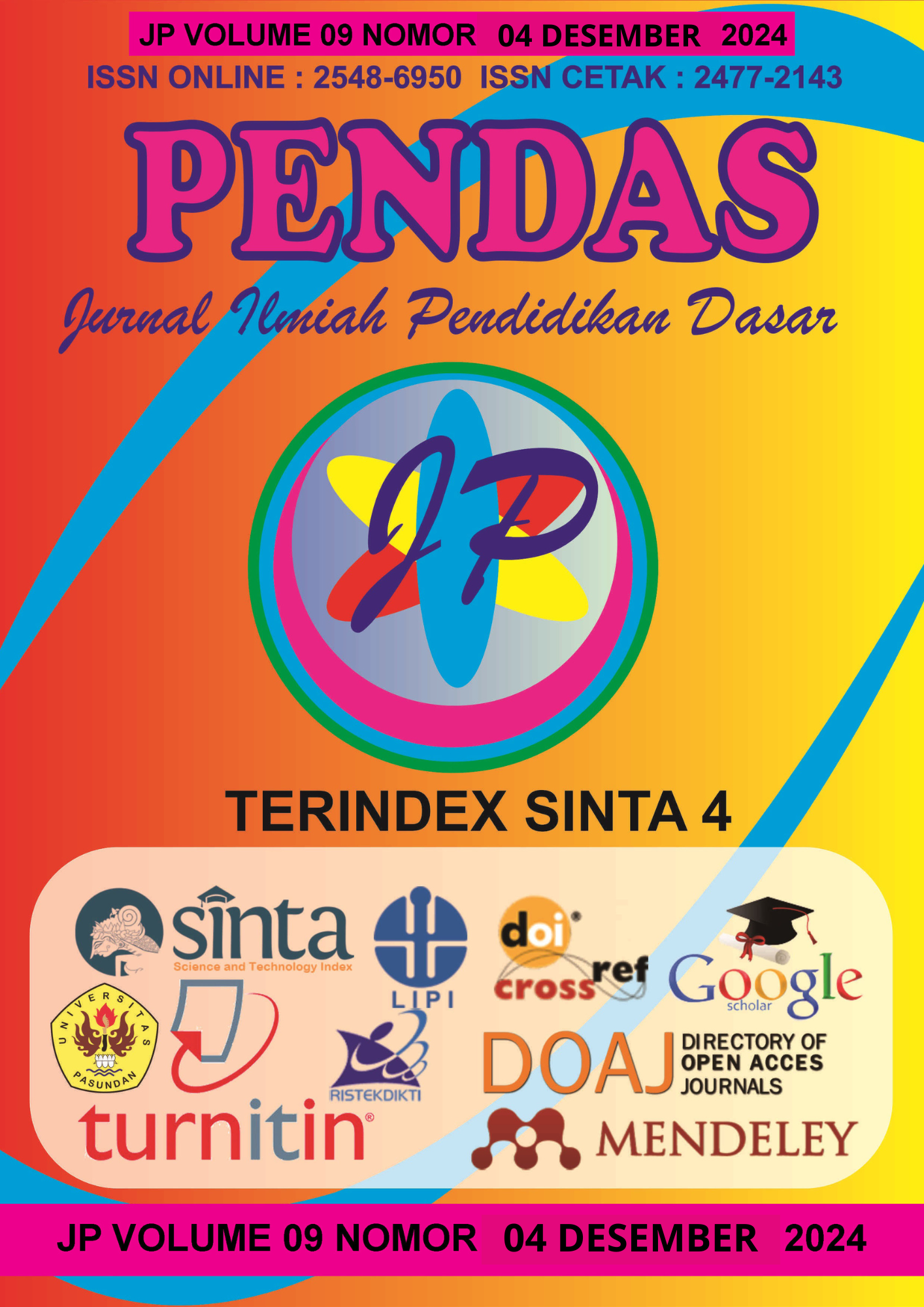EVALUASI IMPLEMENTASI PROGRAM PENDIDIKAN INKLUSI BERDIFERENSIASI DI SEKOLAH DASAR MENGGUNAKAN MODEL CIPP (CONTEXT, INPUT, PROCESS, PRODUCT)
DOI:
https://doi.org/10.23969/jp.v9i04.20650Keywords:
Inclusive Education, Evaluation of Program Implementation, CIPPAbstract
This research is motivated by the urgent need to implement inclusive education in all educational institutions in accordance with the Merdeka Curriculum, which aims to provide equal education rights for all learners. This field research used qualitative approach and CIPP (Context, Input, Process, Product) evaluation model. Data were collected through observations, interviews, and formative assessments over four weeks. The results showed several important points: (1) In the content component, the profile of SDN 050 Cibiru is in the good category although teachers have not received formal training on inclusive education. (2) In the input component, students with special needs are accepted in the mild to moderate category, with the implementation of Merdeka Curriculum without modification of teaching materials, but there are adjustments in the learning process. (3) In the process component, planning and implementing learning activities are in accordance with adaptive methods, as well as the integration of students with special needs in group assignments. (4) In the product component, learners with special needs showed significant cognitive development as well as increased affective and psychomotor contributions. This research emphasizes the importance of teacher training and adjusting facilities to support the success of inclusive education and improve educational equality in schools.
Downloads
References
Anggito, A., & Setiawan, J. (2018). Metodologi penelitian kualitatif. CV Jejak (Jejak Publisher).
Charismana, D. S., Retnawati, H., & Dhewantoro, H. N. S. (2022). Motivasi Belajar Dan Prestasi Belajar Pada Mata Pelajaran Ppkn Di Indonesia: Kajian Analisis Meta. Bhineka Tunggal Ika: Kajian Teori Dan Praktik Pendidikan PKn, 9(2), 99–113.
Habsy, B. A., Rohida, A. I., Sudarsono, M., Sholikhah, M., Firdaus, M., & Anzhani, V. A. (2024). Tantangan Pendidikan Abad Ke-21: Pemikiran Ki Hajar Dewantara dan Implementasi Kurikulum Merdeka. Jurnal Pendidikan Tambusai, 8(1), 5065–5077.
Marinda, L. (2020). Teori Perkembangan Kognitif Jean Piaget dan Problematikanya pada Anak Usia Sekolah Dasar. An-Nisa Journal of Gender Studies, 13(1), 116-152.
Muflikhah, I. K., & Khobir, A. (2023). Paradigma Filsafat John Dewey dalam Pendidikan Inklusi. PUSTAKA: Jurnal Bahasa Dan Pendidikan, 3(4), 13–22.
Peraturan Menteri Pendidikan, Kebudayaan, Riset dan Teknologi Nomor 48 Tahun 2023 tentang Akomodasi yang layak untuk peserta didik penyandang disabilitas pada satuan pendidikan anak usia dini formal, pendidikan dasar, pendidikan menengah, dan pendidikan tinggi.
Sartika, R. (2014). Standar Sarana Dan Prasarana Di Madrasah MAS Al-Awashliyah Kp. Mesjid. Journal Of Education, 1(1),18.
Sulistyaningsih, M. (2021). Manajemen Pendidikan Inklusi di SMP Islam Al-Irsyad Cilacap. In Edukatif : Jurnal Ilmu Pendidikan (Vol. 4, Issue 1).
Undang-undang Nomor 8 tahun 2016 Pasal 10 tentang penyandang disabilitas.
Wardany, K., Sajidan, S., & Ramli, M. (2017). Pengembangan penilaian untuk mengukur higher order thinking skills siswa. Inkuiri: Jurnal Pendidikan IPA, 6(2), 1-12.
Downloads
Published
Issue
Section
License
Copyright (c) 2024 Pendas : Jurnal Ilmiah Pendidikan Dasar

This work is licensed under a Creative Commons Attribution 4.0 International License.



















